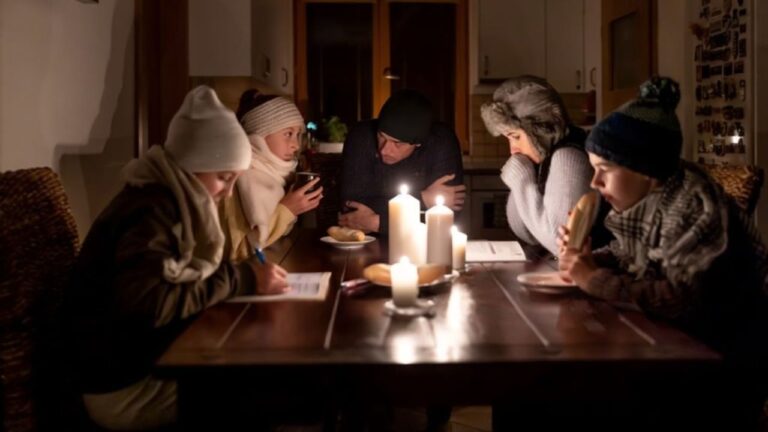If your power goes out for 3 days, here’s what you’ll wish you had stocked
If you’ve ever been through a power outage that stretched past a day, you know how quickly it goes from “kind of peaceful” to “how do we keep the fridge cold?” A three-day outage tests your prep—food, water, comfort, and safety.
The difference between waiting it out calmly and scrambling in the dark comes down to what you already have on hand. Here’s what most people wish they’d thought about before the lights went out.
A way to cook safely
When the power’s gone, even basic meals get complicated. You’ll need a way to heat food that doesn’t rely on electricity. A propane camp stove, a small butane burner, or a gas grill will do the job if you use them safely outdoors. Stock up on extra fuel and matches now, because those disappear first in emergencies. Even a portable stove can turn pantry staples into real meals and help you keep some normalcy when everything else feels off.
Water you don’t have to boil
You need at least one gallon of drinking water per person per day—and more if you’re washing dishes or cleaning up. Most people underestimate this. Store sealed jugs or invest in stackable water containers you can refill regularly. If you’re on a well, make sure you have a manual pump or stored water ready since your pump won’t run without power. When taps go quiet, you’ll be thankful you thought ahead.
Battery backups and light sources
Flashlights, headlamps, and lanterns are worth their weight when you can’t see your hand in front of your face. Stock extra batteries or get rechargeable ones with a solar charger. Candles work, but they’re risky around kids and pets, so it’s better to rely on LEDs. If you use your phone as a flashlight, keep a charged power bank or two in your emergency drawer—you’ll need them long before you run out of patience.
Non-perishable food that actually fills you up
Canned goods, protein bars, rice, peanut butter, and shelf-stable soups can carry you through without feeling like survival rations. Make sure you include things you’ll actually eat—comfort foods go a long way when you’re stressed. Don’t forget a manual can opener, paper plates, and utensils, since you might not want to waste precious water washing dishes.
A way to keep things cool

Food safety becomes a real issue after the first 24 hours. Freeze bottles of water ahead of time to use in coolers during outages—they’ll keep food cold longer and double as drinking water once melted. A small generator or car inverter can help keep your fridge running for a few hours a day, but if that’s not an option, plan to eat perishables first and move essentials like milk and meat to a cooler with ice packs.
Warmth and comfort
If it’s winter, power loss means heat loss. Blankets, hand warmers, and layers will be your best defense. Sleeping bags rated for cold weather are worth having, even if you don’t camp. Close off unused rooms and stay together in one area to hold heat longer. A battery-powered or propane heater made for indoor use can make a world of difference, but make sure it’s designed for safe, ventilated operation.
A way to charge or run small essentials
Even if you don’t have a full backup generator, a portable power station or inverter that runs off your vehicle can charge phones, lights, and small medical devices. Solar generators are getting more affordable and can recharge during the day while keeping essentials powered through the night. Knowing you can still communicate or keep a fan running for air circulation is a huge relief when you’re waiting out the storm.
Sanitation supplies

You don’t think about it until you have to, but when the water stops, sanitation gets tricky fast. Keep disinfecting wipes, hand sanitizer, trash bags, and paper towels stocked. If you’re on septic, avoid overloading it when the pump isn’t running. Having a basic emergency toilet setup—like a lidded bucket, liners, and deodorizing powder—keeps things manageable until normal systems are back online.
A reliable way to stay informed
When storms hit or grids fail, information becomes your lifeline. A battery-powered or hand-crank radio can keep you updated on weather alerts and outages. Cell towers can go down, and Wi-Fi won’t help you without power, so old-school radio wins here. You’ll feel more in control when you know what’s happening beyond your street.
Like Fix It Homestead’s content? Be sure to follow us.
- I made Joanna Gaines’s Friendsgiving casserole and here is what I would keep
- Pump Shotguns That Jam the Moment You Actually Need Them
- The First 5 Things Guests Notice About Your Living Room at Christmas
- What Caliber Works Best for Groundhogs, Armadillos, and Other Digging Pests?
- Rifles worth keeping by the back door on any rural property
*This article was developed with AI-powered tools and has been carefully reviewed by our editors.







